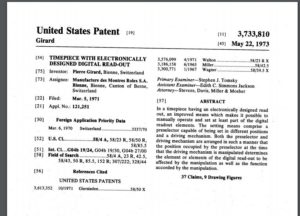CRISPR — Cooking Up BioPharma Patents?

The new biotech revolution is here. CRISPR, or Clustered Regularly Interspaced Short Palindromic Repeat, is a new technique that holds promise for specifically silencing, editing, and activating genes in cells. Like PCR a generation ago, we will divide science history between before and after CRISPR. If this sounds hyperbolic, do a quick search on CRISPR and I think you will agree.
Briefly, CRISPR enables “gene editing,” opening up the world of designer genes — previously the stuff of science fiction. Initially identified as an immune system in bacteria for defending against viral invaders, scientists discovered how to use the CRISPR machinery to guide enzymes to specific locations in the genome and specifically modify sequences. The ability to edit genes (and pass the traits through the germline) has raised significant legal, ethical, culinary, and scientific issues.
But how can CRISPR impact your patent strategies?
The Person Having Ordinary Skill In The Art (PHOSITA) Just Got Smarter
The hypothetical “Person of Ordinary Skill In The Art” or PHOSITA is an interesting character. I was first introduced to her in law school, and she has been a constant companion ever since. PHOSITA is a fictional character working in the field of the invention who helps determine if an invention is “obvious.” If an invention is obvious to PHOSITA, the inventor is not entitled to a patent.
Consider an invention with three parts, A, B, and C. To determine if it would have been obvious to put A, B, and C together, one imagines PHOSITA sitting with the “prior art” around her at the time the invention was actually made — would she have put A, B, and C together? Using the PHOSITA metaphor is supposed to protect against viewing every invention as being obvious in hindsight.
As technology advances and PHOSITA gets smarter and smarter, patent applicants/inventors need to up their game to get a patent! The patent office and courts have more ammunition to reject patent claims as obvious because techniques previously considered difficult will become “routine.” While inventors will be able to use new tools like CRISPR to develop modified genes, proteins, and even organisms, the advance of technology will raise the bar.
The changing state of the art needs to be considered when evaluating the validity and enforceability of a patent portfolio.







